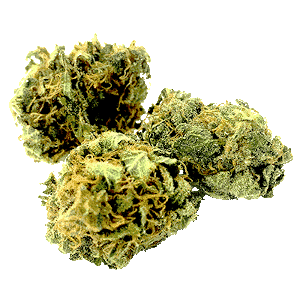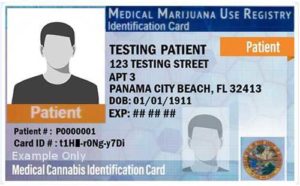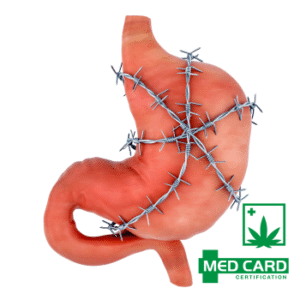
CBD for the Treatment of Women’s Health Conditions
- Women suffering from female-specific medical conditions are finding a measure of relief from hemp-derived CBD oil.
- CBD has been shown to help with a wide array of symptoms including chronic pain and inflammation, anxiety and depression, and even neurodegenerative disorders.
- CBD oil is federally legal and can be purchased without a medical marijuana card.
There are several medical conditions that are experienced only by women or mostly by women. Many patients suffering with these conditions are finding that CBD oil derived from hemp can help to alleviate several of the symptoms such as chronic pain associated with female-specific medical conditions such as cancers of the reproductive system, endometriosis, ovarian cysts, uterine fibroid, and Rett syndrome.
CBD produced from hemp is federally legal and can be purchased outside of marijuana dispensaries nationwide. Anyone can buy CBD online without a medical marijuana card and have it shipped directly to their home.
Let’s take a look at how CBD can help ease the symptoms of some of these women’s health conditions.
Breast, ovarian, cervical, and uterine cancer
These deadly female-specific cancers are often extremely hard to detect. Sadly, in many instances, the disease has progressed to an advanced stage by the time it’s diagnosed. For many women, the only recourse in these cases is chemotherapy which is known to cause loss of appetite, nausea and vomiting, and extreme bouts of anxiety and depression.
Medications and treatments to combat all of the associated symptoms come with harmful side effects. Hemp-derived CBD (cannabidiol) products have virtually no side effects in most patients when used as prescribed and may be the perfect antidote for many women afflicted with these terrifying diseases.
Donald Abrams, an oncologist at the University of California, SF is a champion of cannabis for cancer patients undergoing treatment.
Abrams states:
“I think you still need to use conventional therapies to treat the disease, but if you have symptoms that might benefit from cannabis, you should consider using it. As an oncologist for 38 years, I can tell you it’s an effective treatment for nausea.”
Additionally, the doctor believes that cannabis could effectively stimulate appetite, reduce inflammation.
Some CBD studies have indicated that cancer patients who ingested cannabis concentrates in trials appeared to need far less prescription pain medication.
In some recent animal studies, scientists have reported that cannabinoids such as CBD may also have the ability to slow the growth and spread of certain types of tumors. In fact, cannabinoids actually cause death in some types of lab-grown cancer cells. That being said, far more research is required to fully comprehend the effect of cannabinoids on cancer cells. But the science is promising!
PMS
PMS (Premenstrual syndrome) occurs when estrogen and progesterone levels drop suddenly after a woman’s ovulation cycle as the body “prepares” itself for pregnancy. It can produce symptoms such as breast tenderness, fatigue, abdominal pain, depression, and anxiety.
Research is showing CBD can act as an anti-spasmodic greatly reducing cramping during PMS and menstruation.
Cannabidiol is also known to relieve pain due to cramps by blocking the neural pathways that transmit pain.
Menopause
There is no escaping the inevitability of menopause and the symptoms and changes that occur in an aging female body. However, many women have found some relief from certain types of pain, plus anxiety, hot flashes, and insomnia that often accompany menopause.
Hot flashes are the biggest challenge women face during the menopausal years. They can disrupt REM sleep and trigger “night sweats” that leave women feeling exhausted and dehydrated. This lack of sleep can, in turn, lead to chronic depression and a host of other medical issues.
Although there have not been sufficient clinical studies to scientifically prove that CBD can relieve hot flashes, there is substantial anecdotal evidence. Many women claim that CBD effectively reduces the frequency and severity of hot flashes.
Postpartum depression
The following information is aimed at new mothers experiencing PPD who are not breastfeeding. Ingested cannabinoids can leach into breast milk, and their effects on newborns are unknown at this time.
Many women experience major hormonal shifts after giving birth. This shift can result in mood swings and depression. CBD extracts may help with those sometimes debilitating conditions
CBD has the ability to interact with the body’s innate endocannabinoid system. The cannabinoids found in cannabis stimulate the receptors (found in abundance throughout the brain and body) to increase the production of the “feel-good” hormone, serotonin.
Although there is a significant lack of research, some doctors are optimistic in regard to the use of CBD for postpartum depression. Dr. Felice Gersh, obstetrician and gynecologist says:
“CBD has anecdotal reports that it can help improve mood disorders, and there is a small amount of scientific data to support its use for depression, and more data supporting its use for anxiety. CBD may affect the receptors which are involved with serotonin, a powerful neurotransmitter related to mood. There are endocannabinoid receptors throughout the female brain and CBD has the potential to improve brain healthy function and calm nerves.”.
Morning sickness
Although CBD is known for its ability to lessen nausea, it’s not advisable to ingest any cannabinoids while pregnant.
Ovarian cysts (polycystic ovary syndrome)
Polycystic ovary syndrome (ovarian cysts) can have a negative effect on the body’s hormone balance, neurotransmitters, metabolism, and neurological activity.
Additionally, there is a strong correlation between PCOS and insulin balance. CBD may, in fact, regulate blood sugar and improve the negative feedback control of insulin balance.
Another debilitating effect of PCOS is the increase of the stress hormone cortisol. This hormonal spike can induce severe anxiety in many women suffering from PCOS. As we mentioned above, CBD is well known for its anti-anxiety effects.
In a recent, placebo-controlled, double-blind study, the anti-anxiety effects of CBD were compared to the pharmaceutical anxiety medication benzodiazepine. The researchers in the study unanimously concluded that CBD reduces anxiety in human volunteers submitted to a stressful situation.
Uterine fibroid
There have been no quantifying studies on the application of CBD for uterine fibroids to date. However, some studies indicate that the multifaceted cannabinoid may indeed alleviate the pain and inflammation associated with uterine fibroid syndrome.
For example, the Journal of the American Medical published a study involving a group of female participants who regularly used CBD to reduce cramping and pain during menstruation. Ultimately the study revealed that the use of CBD may significantly lessen swelling and inflammation in the uterus.
Manuel Gelinas, one of the researchers and a professor at the University of Montreal had this to say:
“This is the first time that a pharmaceutical-grade, endocannabinoid-derived phytocannabinoid has been shown to have antifibrotic activity in vivo.”
CBD may also be useful in balancing mood swings brought on by the hormonal shift that accompanies fibroid growth. This shift occurs as CBD stimulates the endocannabinoid system to increase serotonin. It may also attenuate the accumulation of cells as well as the progression and growth of fibroid tumors.
Some fibroid patients have even found relief from pain and inflammation from CBD suppositories.
Endometriosis
Women suffering from endometriosis may endure chronic pelvic and abdominal pain in addition to infertility, anxiety, and depression. In many cases, only surgery or hormone therapy will help alleviate the condition. However, these options are often highly invasive and have numerous, unpleasant side effects.
Some high-profile medical professionals speculate that a deficiency in the body’s endocannabinoid system may be a contributing factor in the onset of endometriosis.
Dr. Ethan Russo, MD, director of CReDO Science has been the driving force in the development of cannabinoid-based medical, diagnostic innovations. Dr. Russo believes that CBD oil activates the TRPV1 vanilloid receptor, which may be overly expressed in endometriosis sufferers. The receptor is known to cause pain when stimulated.
Dr. Russo postulates that dysfunctional cannabinoid receptors may be the reason overeager cells tend to proliferate in endometriosis patients. He states:
“In endometriosis lesions compared to controls, there has been a decrease in both the CB1 and CB2 receptors. Cannabidiol is a stimulator of the TRPV1 receptor that is able to desensitize it. That’s a way of saying that after a little bit [of stimulation], the TRPV1 receptor doesn’t respond anymore. So it’s a way of treating pain.”
Inflammation is one of the greatest contributors to endometrial pain. Some studies report that CBD may decrease cytokine production and significantly reduce inflammation. Cytokines are naturally occurring proteins known to trigger the inflammatory response.
A recent survey polled 484 women with endometriosis to discover which pain-relieving methods were the most beneficial. The results of the survey yielded some surprising results. CBD ranked near the top, scoring an average of 6.3 for effectiveness when rated on a scale of 1 to 10.
Rett syndrome
Rett syndrome is a genetic, developmental, neurodegenerative disease that predominantly affects females. Over time this condition will cause loss of speech and motor skills. The life expectancy for Rett patients is 40-50 years of age.
CBD may have the potential to modulate the underlying mechanisms that cause neurobehavioral deficiencies caused by the condition. This is because CBD offers potent antioxidant, neuroprotective, and anti-inflammatory effects.
Dr. Sanchez-Ramos reports on an early study that examined the neuroprotective and antioxidative actions that cannabinoids facilitate. Essentially, cannabinoids can potentially “slow the onset and progression of neurodegenerative conditions.”
The British Journal of Pharmacology (March 2014) reported that “modulating the endogenous cannabinoid system is emerging as a potentially viable option in the treatment of neurodegeneration.”
The American Academy of Neurology reported, in an evidence-based systematic review, that CBD and other cannabinoids indicated great potential for the treatment of neurological disorders. Cannabis demonstrated, in a number of randomized, controlled studies, the ability to decrease the spasticity and pain associated with multiple sclerosis. This is good news for patients with Rett syndrome and other neurological disorders who suffer from the same debilitating symptoms.
Conclusion
Hemp-derived CBD has the potential to help patients suffering from an array of medical conditions that are specific to women. However, women who are pregnant and nursing should not be using cannabis unless directed to do so by a qualified healthcare professional. CBD is legal in all fifty states. Shop CBD online.
All of the above-mentioned conditions are serious enough that patients should avoid self-medicating. Treatment should be supervised by a knowledgeable medical marijuana doctor.
Sources and Additional Reading
- CBD & Cannabis for Endometriosis
- GW Research initiated a clinical trial of cannabidiol in Rett syndrome
- From Cannabinoids and Neurosteroids to Statins and the Ketogenic Diet: New Therapeutic Avenues in Rett Syndrome?
- Local upregulation of transient receptor potential ankyrin 1 and transient receptor potential vanilloid 1 ion channels in rectosigmoid deep infiltrating endometriosis
- Self-management strategies amongst Australian women with endometriosis: a national online survey – BMC Complementary Medicine and Therapies















